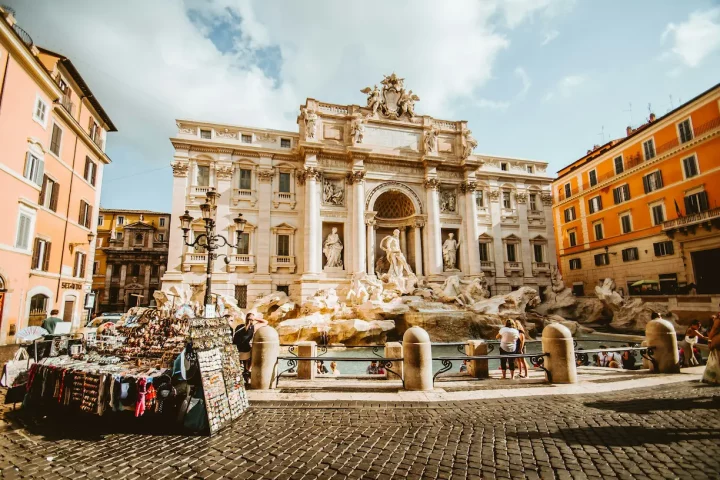Planning a trip or an extended stay in Italy involves understanding the country’s visa regulations, which are important for travelers and potential residents alike. This article will delve into the current rules, exceptions, and necessary procedures to help you navigate your stay in Italy with ease. Additionally, we’ll explore the benefits of obtaining Italian citizenship, which offers not only extended stays in Italy but also access to the broader European Union. Let’s begin by understanding the basic rules for visa-free stays in Italy.
Basic Rules for Visa-Free Stay
Understanding the basic rules for visa-free stays in Italy is essential for planning your visit. Here’s a breakdown of the key points:
- Schengen Area Countries:
- Citizens of Schengen Area countries can travel to Italy without a visa and stay for an unlimited period, as Italy is part of the Schengen zone. This allows for seamless travel across member countries without border checks.
- Citizens of Schengen Area countries can travel to Italy without a visa and stay for an unlimited period, as Italy is part of the Schengen zone. This allows for seamless travel across member countries without border checks.
- Non-Schengen EU Countries:
- Citizens of non-Schengen EU countries, such as Northern Ireland, can also stay in Italy without a visa for up to 90 days within a 180-day period.
- Citizens of non-Schengen EU countries, such as Northern Ireland, can also stay in Italy without a visa for up to 90 days within a 180-day period.
- Visa Waiver Program Countries:
- Citizens of countries that are part of the Visa Waiver Program, including the United States, Canada, Australia, and Japan, can stay in Italy for up to 90 days within a 180-day period for tourism, business, or family visits without needing a visa.
- Citizens of countries that are part of the Visa Waiver Program, including the United States, Canada, Australia, and Japan, can stay in Italy for up to 90 days within a 180-day period for tourism, business, or family visits without needing a visa.
- Bilateral Agreements:
- Some countries have specific bilateral agreements with Italy that may allow for different durations of visa-free stays. It’s important to check the specific agreements your country may have with Italy.
- Some countries have specific bilateral agreements with Italy that may allow for different durations of visa-free stays. It’s important to check the specific agreements your country may have with Italy.
- Purpose of Stay:
- The visa-free stay is typically allowed for purposes such as tourism, short-term business activities, and family visits. If you plan to study, work, or stay longer than the allowed period, you will need to apply for the appropriate visa.
- The visa-free stay is typically allowed for purposes such as tourism, short-term business activities, and family visits. If you plan to study, work, or stay longer than the allowed period, you will need to apply for the appropriate visa.
Understanding the 90/180 rule.
The 90/180 rule is a key regulation for visa-free travel within the Schengen Area, which includes Italy. Here’s how it works:
- 90 Days Within 180 Days: You can stay in Italy (and other Schengen countries) for up to 90 days within any 180-day period without needing a visa. This period is cumulative, meaning it includes all your stays within the Schengen Area. For example: If you enter Italy on January 1st and stay for 30 days, then leave and return on March 1st for another 30 days, you have used 60 of your 90 days. If you then return on May 1st, you can only stay for another 30 days within the next 180 days from your first entry on January 1st.
Exceptions and Special Considerations
While the basic rules for visa-free stays in Italy are straightforward, there are several exceptions and special considerations that travelers should be aware of:
- Extended Stays for Certain Nationalities:
- Some countries have bilateral agreements with Italy that allow their citizens to stay longer than the standard 90 days within a 180-day period. It’s important to check if your country has such an agreement.
- Some countries have bilateral agreements with Italy that allow their citizens to stay longer than the standard 90 days within a 180-day period. It’s important to check if your country has such an agreement.
- Medical Treatment:
- If you need to stay in Italy for medical treatment, you may be eligible for a visa extension. You will need to provide documentation from a medical professional in Italy outlining the necessity and duration of your treatment.
- If you need to stay in Italy for medical treatment, you may be eligible for a visa extension. You will need to provide documentation from a medical professional in Italy outlining the necessity and duration of your treatment.
- Special Permits:
- Certain regions in Italy, such as the Vatican City, may have additional entry requirements or permits. Ensure you check the specific regulations if you plan to visit these areas.
- Certain regions in Italy, such as the Vatican City, may have additional entry requirements or permits. Ensure you check the specific regulations if you plan to visit these areas.
- Other situations
- If you are a student, researcher, or need medical treatment, you may apply for an extension of your visa. Make sure to check if you qualify.
- If you are a student, researcher, or need medical treatment, you may apply for an extension of your visa. Make sure to check if you qualify.
By understanding these exceptions and special considerations, you can better plan your stay in Italy and ensure that you comply with all relevant regulations. If you find yourself in a unique situation, it’s always a good idea to consult with the Italian consulate or embassy for personalized advice.
Take advantage of specialized assistance to secure your passport for a borderless future.
Italian Citizenship and Borderless Access
Obtaining Italian citizenship offers numerous benefits, including the ability to stay in Italy indefinitely and enjoy the privileges of being a European Union (EU) citizen. Here’s an overview of the advantages and the process:
Benefits of Italian Citizenship:
- Ease of Access to Citizenship: There are no generational limits, meaning you can apply for citizenship even if your Italian ancestors are several generations back. The process, known as “jure sanguinis” (right of blood), allows descendants of Italian citizens to claim citizenship by proving their lineage..
- Unlimited Stay: As an Italian citizen, you can live, work, and study in Italy without any visa restrictions
- EU Mobility: Italian citizenship grants you the right to live, work, and travel freely within the 27 EU member states. This borderless access is a significant advantage for personal and professional opportunities across Europe.
- Healthcare and Education: You can access Italy’s public healthcare system and benefit from educational opportunities available to EU citizens.
- Voting Rights: Italian citizens can participate in national and EU elections, giving you a voice in the political processes of both Italy and the EU.
- Dual citizenship: Italy allows dual citizenship, meaning you can retain your original nationality while becoming an Italian citizen. This dual status can provide additional flexibility and benefits.
Conclusion
Understanding the visa regulations for Italy is crucial for anyone planning to visit or stay in the country. By familiarizing yourself with the basic rules, exceptions, and procedures for extending your stay, you can ensure a smooth and legal experience. Additionally, exploring the option of obtaining Italian citizenship can open up a world of opportunities, granting you the freedom to live, work, and travel across the European Union. We encourage you to take the necessary steps to plan your stay in Italy, and if eligible, consider the advantages of Italian citizenship. Enjoy your journey and the many experiences that Italy has to offer!
Take advantage of specialized assistance to secure your passport for a borderless future.






